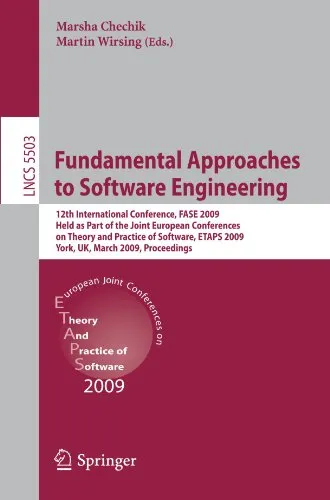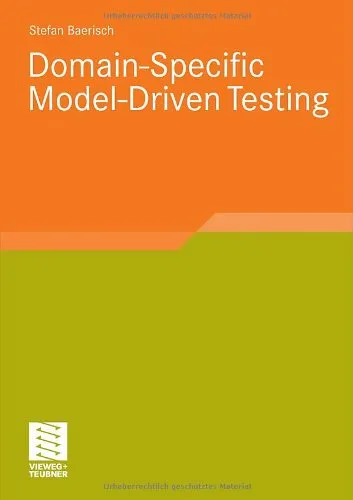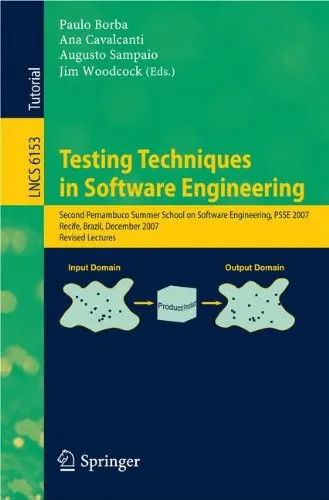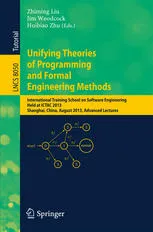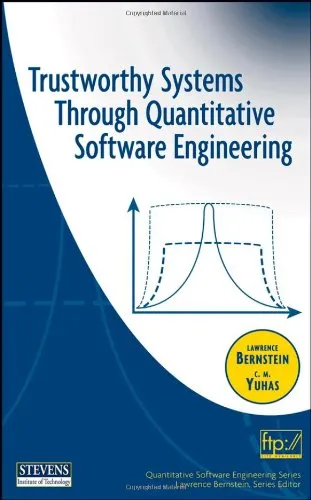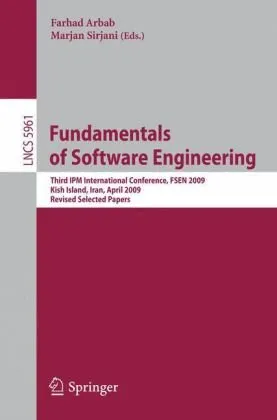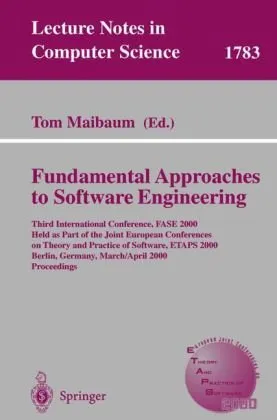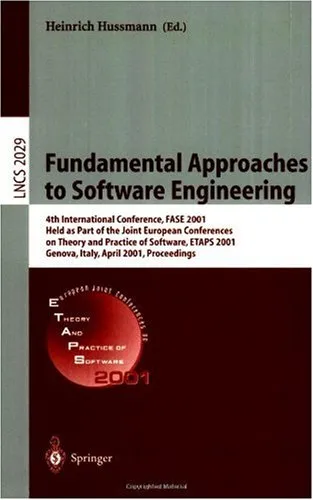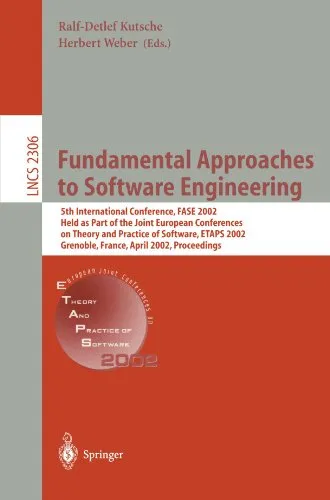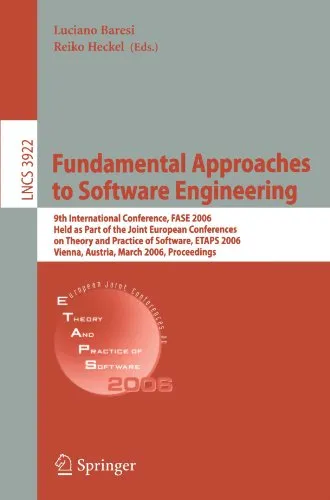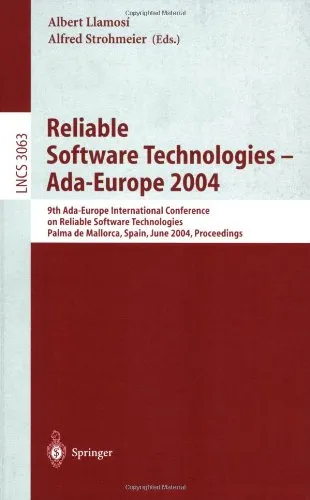Fundamental Approaches to Software Engineering: 12th International Conference, FASE 2009, Held as Part of the Joint European Conferences on Theory and Practice of Software, ETAPS 2009, York, UK, March 22-29, 2009. Proceedings
4.0
Reviews from our users

You Can Ask your questions from this book's AI after Login
Each download or ask from book AI costs 2 points. To earn more free points, please visit the Points Guide Page and complete some valuable actions.Related Refrences:
Introduction
The book "Fundamental Approaches to Software Engineering: 12th International Conference, FASE 2009" presents a collection of state-of-the-art research papers that were discussed during the 12th International Conference on Fundamental Approaches to Software Engineering (FASE 2009). Held as part of the Joint European Conferences on Theory and Practice of Software (ETAPS 2009) in York, United Kingdom, this prestigious conference convened leading scholars, practitioners, and experts in the field of software engineering.
The proceedings encapsulate groundbreaking research in diverse aspects of software engineering methodologies, tools, and techniques. Ranging from studies in formal methods to empirical evaluations of software practices, the contributions presented in this text aim to not only deepen the understanding of software engineering principles but also pave the way for innovative solutions to real-world problems faced by the industry. Each paper has undergone thorough peer review, ensuring the high-quality standard expected of the ETAPS series.
Structured to cater to both researchers and professionals, the book delves into topics such as model-driven engineering, component-based development, program analysis, testing methodologies, and more. It addresses theoretical foundations while also maintaining a steadfast focus on real-world applicability. By synthesizing novel ideas and practices in software engineering, this book serves as a fundamental resource for advancing the discipline both academically and practically.
Detailed Summary of the Book
The book comprises carefully selected papers that analyze, design, and implement innovative approaches to software systems. The discussions focus on contemporary methodologies while shedding light on emerging trends that influence the future of the field. Each paper provides a balance between theory and practical implications, making the content impactful for academics and software practitioners alike.
Specific themes explored include:
- Advancements in model-driven approaches to software engineering
- Formal analysis techniques for program verification
- Component-based and modular software development frameworks
- Techniques for ensuring software quality through rigorous testing
- Innovative programming paradigms and their application in real-world scenarios
Additionally, the book emphasizes collaboration between academia and industry, with various case studies and empirical findings validating the proposed methodologies. Readers will also gain insights into the practical implementation of theoretical frameworks and the challenges encountered in their application.
Key Takeaways
The book leaves readers with a profound understanding of cutting-edge software engineering practices and their significance in solving modern software challenges. Key takeaways include:
- Understanding the role of formal methods in enhancing software reliability and safety.
- Insights into model-driven engineering as a means of bridging the gap between high-level system design and implementation.
- Evaluation of empirical studies that validate innovative software testing strategies.
- Foundational principles for adopting modular and reusable software architectures.
- Exploration of novel programming languages and paradigms geared toward improving developer productivity and software quality.
Famous Quotes from the Book
Throughout this collection of research papers, several profound insights resonate with the field of software engineering. Here are some notable quotes:
"Model-driven engineering extends the capabilities of software designers by providing an abstract yet precise foundation to reason about system correctness."
"Test automation must go beyond detection to enable prediction, aiding developers in anticipating and addressing defects early in the lifecycle."
"The future of software engineering lies in bridging theoretical rigor with pragmatic techniques that address evolving industry demands."
Why This Book Matters
The importance of this book lies in its contribution to the advancement of software engineering practices. As the digital world evolves rapidly, software systems are growing in complexity and scope. This compilation addresses some of the most pressing issues in software engineering, offering readers the tools and perspectives they need to stay ahead of the curve.
By blending academic rigor with practical relevance, the book appeals to both experienced software engineers seeking innovative solutions and newcomers aiming to establish a solid foundation in the field. Its forward-looking perspective ensures that the methodologies and research discussed remain relevant in the coming years, making it an indispensable text for anyone involved in software development or research.
Whether you are interested in the theoretical aspects of software verification or practical approaches to system optimization, this book provides unparalleled insights that can transform your understanding of the discipline. It champions the ethos of continuous improvement and innovation—principles that are critical for meeting the demands of modern software development.
Free Direct Download
You Can Download this book after Login
Accessing books through legal platforms and public libraries not only supports the rights of authors and publishers but also contributes to the sustainability of reading culture. Before downloading, please take a moment to consider these options.
Find this book on other platforms:
WorldCat helps you find books in libraries worldwide.
See ratings, reviews, and discussions on Goodreads.
Find and buy rare or used books on AbeBooks.
1238
بازدید4.0
امتیاز0
نظر98%
رضایتReviews:
4.0
Based on 0 users review
Questions & Answers
Ask questions about this book or help others by answering
No questions yet. Be the first to ask!
